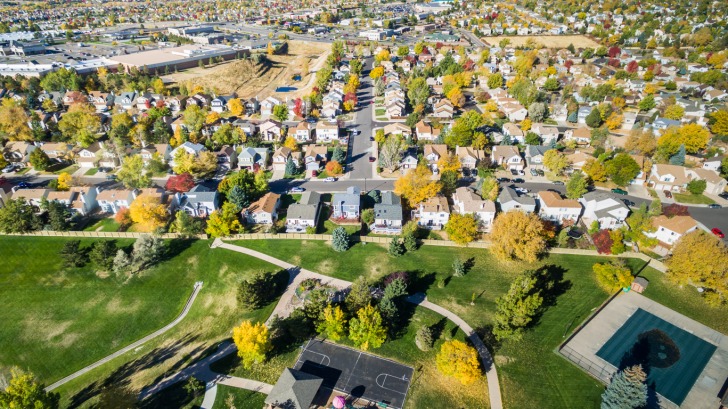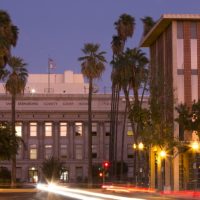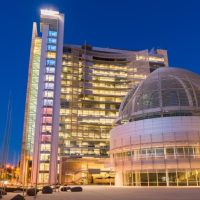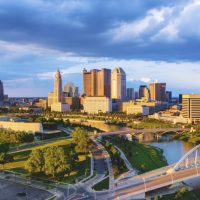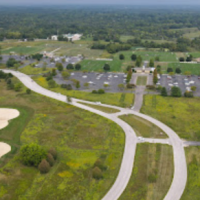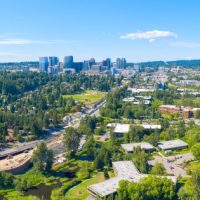Aurora, Colorado is a large city with a lot of activities and a great lifestyle enjoyed by its residents.
The city may be in the highest state in the country, but residents do not seem to mind it.
They live and thrive in a diverse area surrounded by nature and a diverse population.
It is important that future residents learn the pros and cons of any city, including Aurora, Colorado, before moving to the area.
These are the top pros and cons in Aurora.
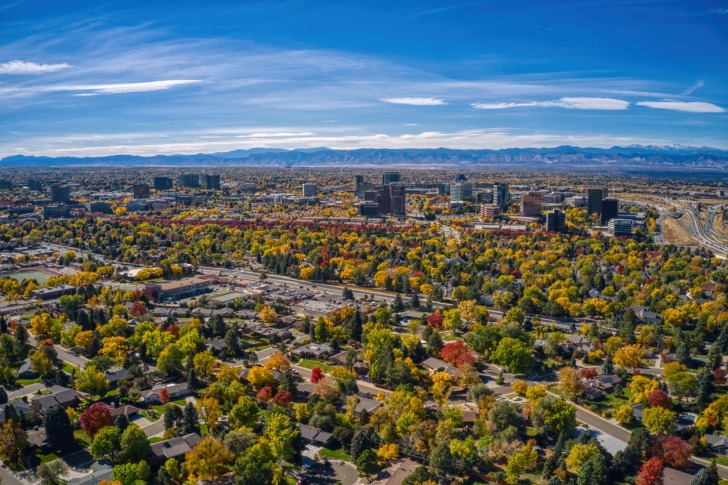
Contents
Pros of Living in Aurora, Colorado
Cost of Living
The cost of living in Aurora is significantly lower than in many other areas of the state and the nation.
Plan to spend less on housing, groceries, health care, and utilities.
The low cost of living is one factor that is likely considered when new residents move to Aurora.
Family Friendly Community
The relaxing feel in Aurora likely contributes to the family-friendly atmosphere among residents.
Families who want to get away from the busy hustle and bustle of the city have plenty of options for spending time together and participating in family-friendly activities.
Neighbors who have families may spend time together with play dates for their children attend local sporting events together or enjoy a day at one of the many area parks.
Strong Job Growth in Aurora
The strong job growth in Aurora, Colorado brings new residents to the area who seek better career opportunities.
Current residents who realize that job growth is a great reason for living in the area likely appreciate that the job growth in Aurora is better than in many other cities.
Future residents will be pleased to know that there are many industries for workers in Aurora.
The top industries for Aurora, Colorado employees are health care, educational services, professional and scientific industries, and social assistance.
Some other industries that people often work in include management, entertainment, retail, and service industries.
Housing Costs
The cost of purchasing a home in Aurora is lower than the price of a home in several other Colorado cities.
It is also less than the U.S. median home price.
The median cost of a home in Aurora is $485,000.
The average cost of a home in Denver is $561,000.
The average home in Fort Collins is $575,000.
The cost of renting in Aurora is lower than in many other areas.
The average rent in the city is $2,266 when considering all types of and sizes of rental property.
The price varies, based on several factors, which include the size of the property, the neighborhood, and amenities.
The median rental cost in the city recently dropped by an average of $231, compared to a year ago.
Diversity
Aurora ranks high for its diversity.
The city ranks above the state average for diversity and also ranks above the national average for diversity.
The diverse neighborhoods include single-family homes, apartments, duplexes, and other types of living spaces.
The many living options add to the diverse feel of the city.
Shopping
Aurora is a haven for people who love to shop.
The variety of stores, shops, restaurants, salons, and grocery stores means that there is something for everyone when residents go on a shopping trip.
Check out the Southlands Lifestyle Center, which has many national chain stores and shops.
It also has a movie theater, a skating rink, restaurants, and spaces for entertainment.
Climate and Weather
The diverse climate in Aurora, Colorado appeals to many people, contributing to new residents moving to the area and current residents staying in the area.
The warm days of the summer months may reach temperatures into the 90s.
There are an average of 300 sunny days in the city.
Winters are somewhat mild but do include several annual snowstorms.
People who enjoy the winter months and snow will find Aurora to their liking as a place to live.
There is considerably less rain in Aurora, with an annual rainfall of 17 inches.
The U.S. annual rainfall average is 38 inches.
Attractions and Things to Do
There is always something for residents to see and do in the city of Aurora.
Visit the Cherry Creek Reservoir to hike the trails, paddleboard, camp, or go horseback riding.
Visit the Jewell Wetlands and marvel at the 50-acre wetlands while on the surface trails or when crossing the boardwalk.
Enjoy family-friendly activities by visiting the Aurora Sports Park, the Aurora Reservoir, or the Expo Park.
The kids will likely demand that you take them to an indoor jump park or an adventure park.
Participate in sports or pamper yourself at a spa or wellness adventure.
Cons of Living in Aurora, Colorado
Crime Rate
Citytistics gives Aurora a grade of “F” on crime.
The violent crime rate of 29.6 in Aurora is higher than the national average of 22.7.
Crimes such as murder, robbery, rape, and assault are included in the list of violent crimes.
The property crime rate in Aurora is also considerably higher than the national average.
Aurora has a 43.5 property crime rate, while the national average is 35.4.
Public Schools
The public schools in Aurora have low test scores, which contributes to the bad reputation that the school system gets from some residents.
The public school system in the city educates 94 percent of Aurora’s students.
The public school district has a math proficiency average score of 24 percent, compared to the Colorado public school average score of 31 percent.
The average reading proficiency score for Aurora public schools is 39 percent.
Compare this score with the statewide average score of 47 percent.
Public School Review ranks Aurora public schools in the bottom 50 percent of the statewide public school districts.
Poverty Rate
The poverty rate in Aurora is 10.2 percent, which is higher than the average poverty rate for the State of Colorado.
The number of people living in poverty in Aurora is nearly 39,000 people.
More than 18 percent of residents under the age of 18 live in poverty.
There is an average of more than 14 percent of residents between the ages of 18 to 64 living in poverty, and more than 13 percent of seniors over the age of 64 living in poverty in the city.
Aurora’s poverty rate is lower than the national average.
Annual Snowfall
While the high amount of annual snowfall may appeal to residents who enjoy wintertime activities, it does not appeal to everyone.
The city of Aurora gets an average of 62 inches of snowfall each year.
The U.S. average annual amount of snowfall is 28 inches.
Future residents should be aware that the temperature during the month of January dips into the teens.
The cold days may mean that the snow stays around for several days.
Median Household Income
The median household income for residents of Aurora is lower than the median income levels for the state.
There was a recent increase in household income for Aurora residents, but the income level still ranks below the average annual income for all Colorado households.
The 2021 median income for Aurora households was $71,647.
The median income for the State of Colorado households in 2021 was $82.254.
An estimated five percent of Aurora households have an annual income of less than $10,000.
Limited Nightlife
Aurora has a few dance clubs and nightclubs.
The city does not seem to have a lot of nightlife venues for people who do not want to engage in the younger adult nightlife scene.
Performing a search for Aurora nightlife turns up some locations for bars and clubs, but not many restaurants, theaters, or other venues.
Pollution and Air Quality
The city of Aurora, Colorado has an issue with bad air quality.
A variety of pollutants contribute to the pollution in the area.
IQAIR explains that the extremely high pollution readings in the Aurora area are occurring often enough that it is of “great concern, particularly regarding the health of its citizens.”
The heavy use of motor vehicles is a primary contributing factor to the pollution.
The wear and tear on tires distribute fine particulates into the air.
Fires, factories, and power plants are other contributing causes to the air quality and pollution concerns in Aurora.
Bad Reputation
Aurora has many activities for all ages and income levels.
The housing costs are below that of other areas in the state and in the U.S.
Yet, the city still has a bad reputation.
Reports on serious crimes, poverty rates, and poor schools often overshadow the good features of a community.
Future residents who want to move to Aurora should check the details from reputable sites, not just opinions.
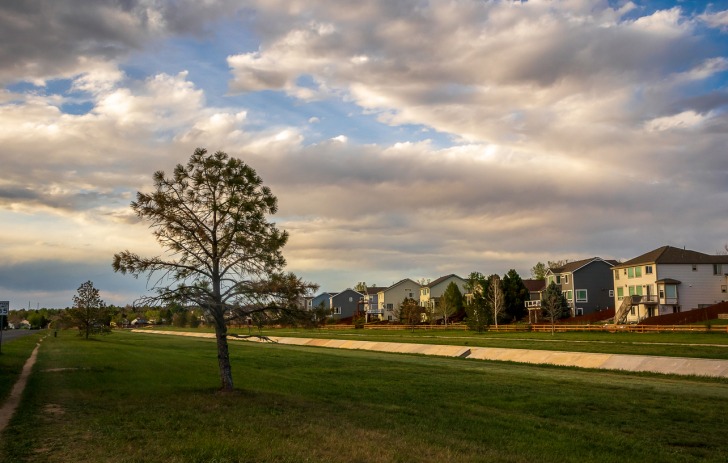
16 Pros and Cons of Living in Aurora, CO – Summary Table
| Pros of Living in Aurora, Colorado | Cons of Living in Aurora, Colorado |
|---|---|
| 1. Cost of Living | 1. Crime Rate |
| 2. Family Friendly Community | 2. Public Schools |
| 3. Strong Job Growth in Aurora | 3. Poverty Rate |
| 4. Housing Costs | 4. Annual Snowfall |
| 5. Diversity | 5. Median Household Income |
| 6. Shopping | 6. Limited Nightlife |
| 7. Climate and Weather | 7. Pollution and Air Quality |
| 8. Attractions and Things to Do | 8. Bad Reputation |
Aurora Safety Overview
READ THE FULL REPORT: Aurora Safety Review
Safety Index: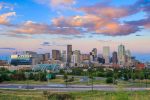
- OVERALL RISK: MEDIUM
- TRANSPORT & TAXIS RISK: MEDIUM
- PICKPOCKETS RISK: MEDIUM
- NATURAL DISASTERS RISK: MEDIUM
- MUGGING RISK: MEDIUM
- TERRORISM RISK: MEDIUM
- SCAMS RISK: LOW
- WOMEN TRAVELERS RISK: MEDIUM
Frequently Asked Questions
What county is Aurora located in?
Aurora, Colorado spans three Colorado counties.
Parts of Aurora are situated in Arapaho, Adams, and Douglas counties.
Is there a large military presence in Aurora?
Several military installations are in and around Aurora and have been important to the area since the early 20th century.
Some military bases closed and have been redeveloped, such as Lowry Air Force Base.
The Buckley Air Force Base, the Army Aviation Support Facility, and the Joint Army/Air Bldg are located in Aurora.
The National Guard and the Buckley Space Force base are other examples of area military installations.
Are there technology employers in the area of Aurora, Colorado?
The largest industries that residents of Aurora work in include the medical and healthcare industries, military, educational, social services, and government.
Tech industries round out the largest employment industries in the area.
Northrup, Colorado Peak Technologies, and iBeta Quality Assurance are some examples of tech industries in Aurora.
What is the elevation of Aurora?
The official elevation of Aurora is 5,471 feet, which is 1,668 meters.
The lowest elevation, 5,285 feet, is located near Sand Creek.
The highest point of elevation, which is 6,229 feet, is located at the southern border of the city and in Douglas County.
What is the Aurora Sports Park?
The Aurora Sports Park, which opened in 2003, received honors from Sports Illustrated just one year later.
The park, and the city, are destinations for many regional and national sports tournaments.
